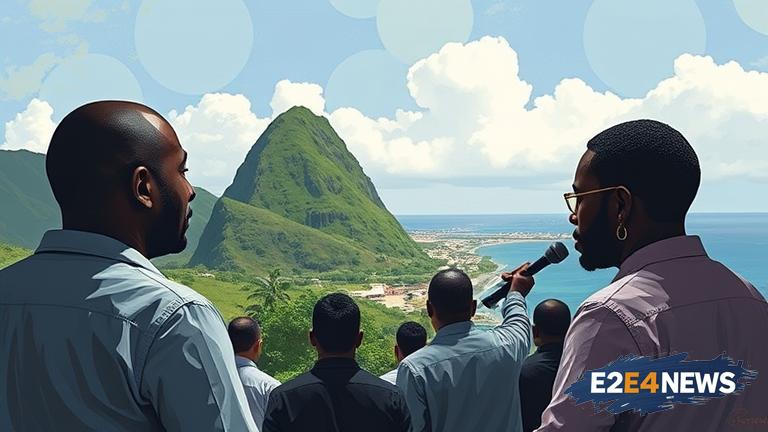The question of what it means to be ‘black enough’ to govern St. Lucia has become a contentious issue, with many arguing that the concept of blackness is being used as a litmus test for leadership. This debate has sparked a wider conversation about the island’s history, its cultural identity, and the role of race in shaping its governance. St. Lucia, an island nation in the Caribbean, has a complex history of colonialism, slavery, and cultural exchange, which has contributed to its diverse population. The issue of blackness and governance is not new, but it has gained renewed attention in recent times, with some arguing that the island’s leaders should reflect its majority black population. Others contend that the focus on race is misguided and that leadership should be based on merit, rather than skin color. The debate has also raised questions about the island’s cultural identity and how it is perceived by its citizens and the wider world. Some argue that St. Lucia’s history and culture are deeply rooted in African traditions, while others see the island as a melting pot of different cultures. The discussion has also touched on issues of class, education, and economic opportunity, with some arguing that these factors are more important than race in determining a person’s ability to lead. Despite the controversy, many see the debate as an opportunity for St. Lucia to reflect on its values and priorities, and to consider what kind of leadership it needs to move forward. The island’s history of slavery and colonialism has left deep scars, and the legacy of these systems continues to shape its society and politics. The debate over blackness and governance is also linked to broader discussions about reparations, reconciliation, and the island’s relationship with its colonial past. As the debate continues, it is clear that the question of what it means to be ‘black enough’ to govern St. Lucia is complex and multifaceted, and that there are no easy answers. The island’s citizens are grappling with fundamental questions about identity, culture, and leadership, and the outcome of this debate will have significant implications for the island’s future. Ultimately, the discussion is not just about race, but about the kind of society that St. Lucia wants to build, and the values that it wants to uphold. The debate is also a reminder that the island’s history and culture are not fixed or static, but are constantly evolving and being reinterpreted. As St. Lucia navigates this complex and sensitive issue, it is clear that the island’s future will be shaped by its ability to confront its past and to forge a new path forward.
